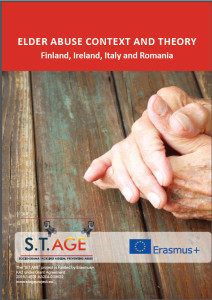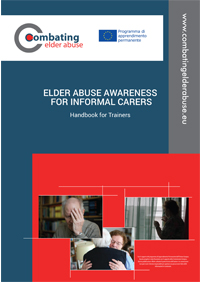The “Respect to prevent” programme is based on the theory of Generational intelligence. This approach acknowledges that generational identities exist between socially and self-defined age groups and as a consequence similarities and differences, as well as conflict and solidarity, can develop between those groups. Biggs and Lowenstein (2011) propose the concept of generational intelligence as way of understanding elder abuse. Generational intelligence is specifically The ability to reflect and act, which draws on an understanding of one’s own and others’ life-course, family and social history, placed within its social and cultural context.
Biggs and Lowenstein (2011) argue that this lack of awareness of generational complexity culminates in treating people from the older generation as not having the same rights as the rest of society. Relationships are viewed as an intergenerational space. To become generational aware or intelligent, one must become aware of one’s personal generational identity, building empathy towards persons from other generations by understanding their values and needs, and also acting in a way that takes into account generational differences. Shifting from conflict to solidarity between generations requires compromise and the equal recognition of priorities, not only within families, but also in care settings.
The “Respect to prevent” programme aims to increase generational intelligence among participants in the training as a means to prevent elder abuse. It works by increasing empathy among care workers for the people in their care and by empowering older people to refuse to accept poor treatment. More specifically, as far as older persons are concerned, the aim of the workshops is to support them to better understand their human rights, enabling them to recognize abusive behavior, overcome their fear of repercussions and give them the confidence to take action. The goal for formal carers is to build empathy and respect to broaden their understanding of ageism and promoting self-care.
After the development of the “Respect to prevent” education programme, which was the second outcome of the STAGE project, the project moved to the evaluation stage. In each country the Respect to Prevent programme was piloted in three settings. Ten to fifteen participants took part in each workshop. Participants included managers, formal carers and older persons. These were used to gather their experiences of participating in the programme and, in this way, test our methodology to assess its effectiveness, its capacity to engage target groups success in communicating the desired messages and identify learning outcomes.
This report outlines the outcomes of the piloting in Ireland, Italy, Finland and Romania. Chapter two summarizes and compares the results achieved in the different countries, while chapter three onwards includes detailed reporting and data analysis for each country-context.
Download the full report here




